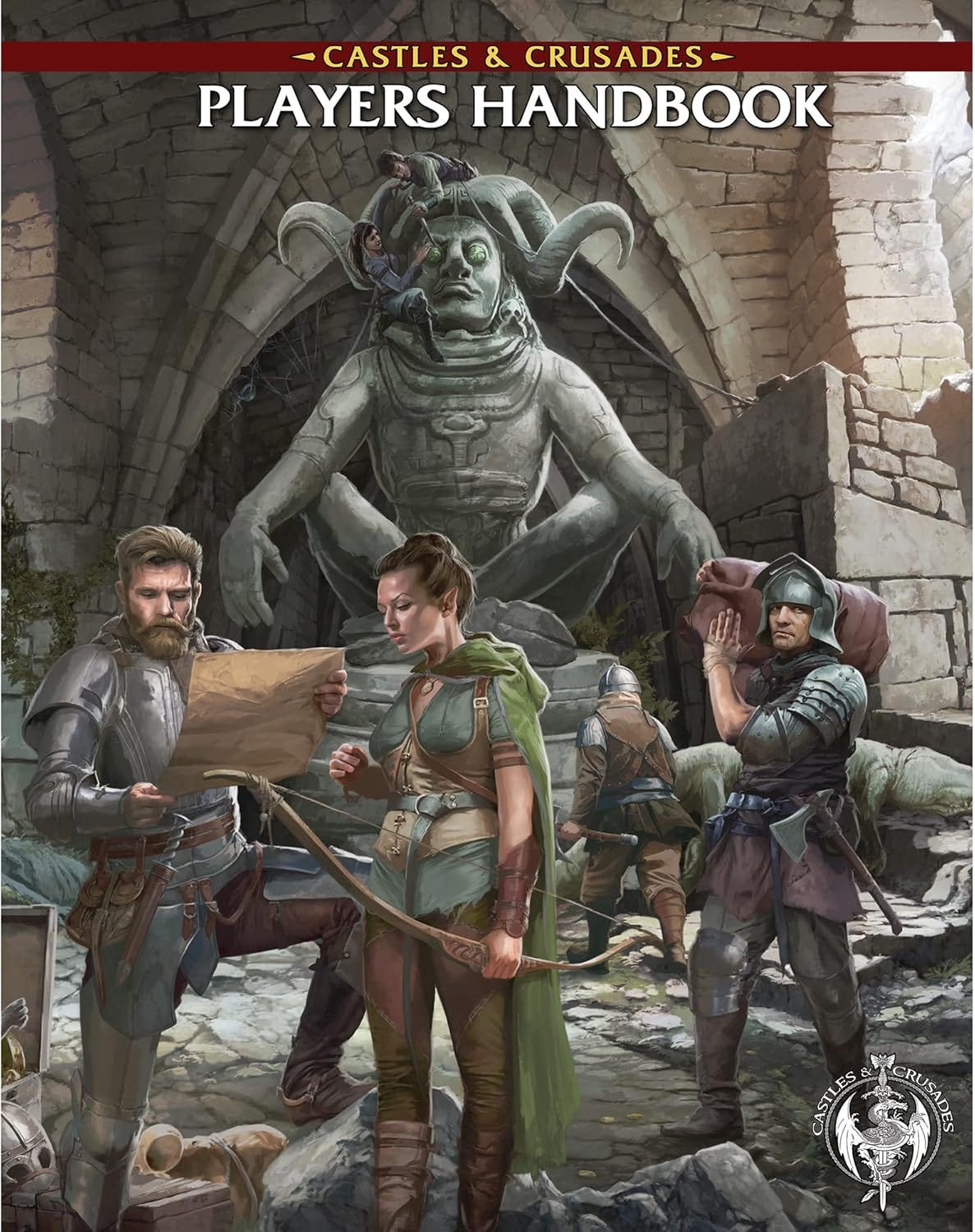Why New DMs Should Embrace Limitations
And Why Castles and Crusades has just the right amount of them
I don’t know how you feel about limitations in rpgs, but I like them.
I like when I’m playing in a game, like Shadaowdark, where I can not only lose a spell, but I can lose it until I have performed some kind of penance. No short rest will bring it back, I have to actively pursue restitution.
Character building, in this way, to me, is a joy, not a limitation.
Back in the olden days D&D there were many limiting rules
Certain races had level limitations ex: dwarves were limited to 8th level in the fighter class.
Only humans could be monks
Clerics could only use blunt weapons (no stabby, stabby or slashy, slashy)
When I was playing 1st ed with my friends, we may have balked at some of the limitations but the rules were the rules and that caused us to get creative and scrounge for any advantage we could find, to our DMs chagrin.
Limitations help creativity
I love the idea of 6 word stories. This idea is credited to Hemingway who bet a patron, who was insulting his books, that he could write an entire novel in 6 words. The patron took that bet and Hemingway wrote down,
Baby shoes, for sale. Never worn
What adventure hooks, npcs or even cities could you create if you limited your word count to 6?
Limitations as way to play a better character
I play a witch in my Monday night Shadowdark games. A witch can only wear leather armor and I roll hit points, at each level, on a 1d4. You know what this means, I don’t get to be a superhero and I’m ok with that.
The limitations of Shadowdark mechanics, no short rests, no dark vision, makes me more creative in how I play my character, Elinor.
The right amount of limitations
This where I think Castles and Crusades succeeds. From the get go, C&C limits a character from it creation.
Castles and Crusades uses the Siege Engine mechanic which is a d20+ character level+ the character’s attribute bonus. What drives this engine are primary and secondary attributes assigned when you choose a class.
Example
If you’re a wizard, your primary attribute is Intelligence. The Challenge Base for a wizard is 12 to hit, interpret a magic book, know/understand lore, etc. because their primary attribute is intelligence. This number can go up or down based on other factors such as if you’re trying to get as spell off in a hurricane, the 12 Challenge Base would go up, way up.
If the wizard is trying to decipher magic runes that he/she was once taught in school, the Challenge Base could go down, at the Castle Keeper’s discretion, because of the wizards previous exposure.
A wizard would not be wise to try to pick a pocket, like a thief, because dexterity, for a wizard, is a secondary attribute which means the Challenge Base to achieve picking a pocket is 18. This number is also adjusted, usually higher, based on circumstances.
The appeal of Castles and Crusades is that if your character is good at something, they are very good at something, such is the boon of a primary attribute. If you are not good at something, it’s not a punishment, it is a limitation which means if you’re a thief, maybe you should stick to thieving not trying to cast spells. Failure is a great teacher but you could also blow yourself up.
Castle and Crusades is the “just right” rpg porridge
There are plenty of rpgs that have virtually no limitations, but in removing the limitations, each race/class are indistinguishable from one another. They can all fight, they can all cast magic, they can all backstab, etc. This homogeneity is, in my opinion, unfulfilling.
But, no matter what game you run, you can establish certain limitations for the kind of game you want to run at your table, regardless of what the rules say,
only human characters in this game
no flying animals besides dragons
character will only be allowed to reach 10th level and then you retire
no resurrection or wish spells or counter spells (or that Silvery Barbs thing)
Of course, tell your players the kind of game you will be running before you start, maybe discuss it during a session zero.
C&C’s built in limitations allow each player to shine at the table, be creative and feel satisfied that they did a thing that only they could do.
How about you. Do like games with limitations or do prefer games where there are little to no limitations. Let me know in the comments.




